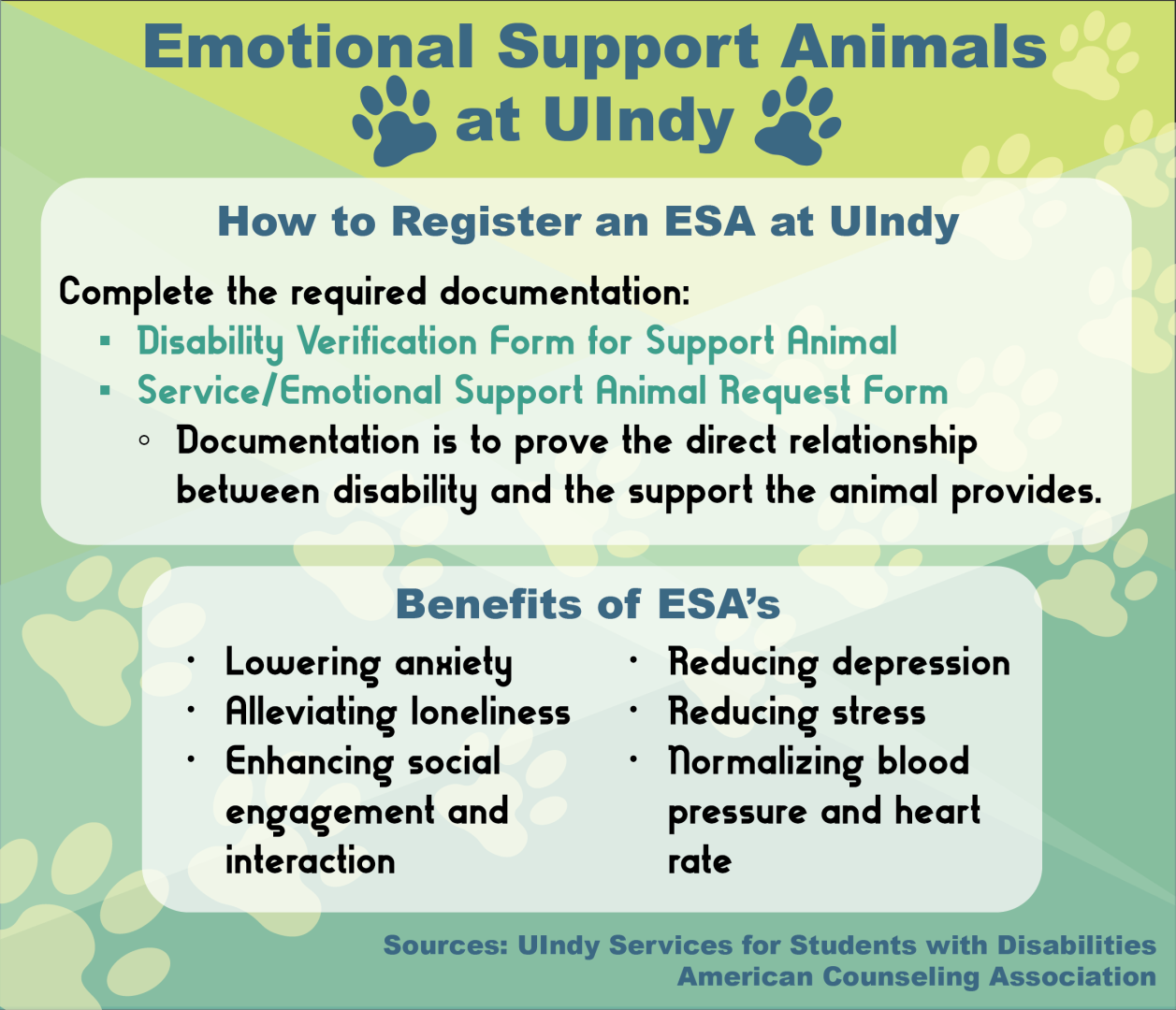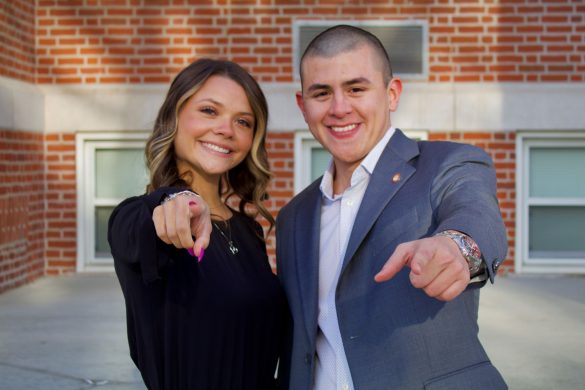It was the summer of 2020. I was a new high school graduate, mentally drained from my COVID-19-filled senior year and excited to finally go away to college. College meant independence and freedom, which I longed for. I had no fears about stepping into college life–except one: not being able to bring my emotional support animal to the University of Indianapolis.
I was formally diagnosed with generalized anxiety and major depressive disorder in middle school, which continue to be obstacles in my adult life. To help me cope with my mental health issues, my parents allowed me to get a dog (a very cute corgi named Leo in my junior year of high school). Leo changed my life immediately, giving me new-found joy and a sense of purpose. So, anyone could probably gather why I wanted to keep Leo with me–especially when I went to college an hour away from my hometown.
Before the school year began, I had my psychiatric provider fill out UIndy’s Disability Verification Form for Support Animal, which is basically paperwork that has to be filled out by a health professional confirming that you have some sort of mental illness or impairment. On my end, I filled out the Service/Emotional Support Animal Request Form (which was on paper then), detailing my reasons for requesting to bring an ESA on campus.
My request to bring Leo to UIndy was denied a couple of weeks before freshman move-in. I was devastated and confused.
I reached out to the UIndy Services for Students with Disabilities office for an answer, and they simply told me that there was not enough evidence of my need for an ESA to grant my request. My options were to start the whole paperwork process over again (did I mention at the time that they required everything to be sent to them via mail?) or to go to college without my ESA. I chose to start the process over again.
When I explained the situation to my psychiatric provider, she was taken aback. She said that in all her years of practice, she had never had this much trouble with a university accepting an accommodation request for an ESA. I remember her asking if they wanted my whole life story when I told her that the information she had provided about my conditions was not enough for the Services for Students with Disabilities office.
I know I am not the only student who has struggled to get his or her emotional support animal verified through the university. One of my very close friends also went through the same experience; however, they had to take an extra step and have a video conference with the office and my friend’s health care provider to dispute the denial.
I understand that the university cannot just let any animal on campus as an ESA. There are governmental rules and liabilities involving service animals. However, it seems a bit unsound that, even with the word and signature of a professional health care provider, the university’s SSD office can deny a student’s request for an ESA.
I suppose the fact that the university does not charge students for having ESAs or other service animals on campus might give someone a reason to “fake” an accommodation application. According to the university’s Animals on Campus Policy, bringing a pet to campus costs $250 and requires approval from the Assistant Director of Residence Life and/or Associate Dean of Students. I believe that the majority of students who request an ESA do not apply to avoid the fee. First, owning and caring for an animal is already expensive. Second, and more importantly, telling others about your mental health conditions takes a lot of courage. It takes even more courage to defend your conditions when they are invalidated by someone (or an institution). Students do not out these forms for no good reason.
So, what should UIndy do to improve the process of gaining approval for an ESA? First, if the university has strict guidelines for disability certification, then those should be made obvious. Second, the SSD should direct itself with more gentleness and altruism to address all kinds of disability accommodation requests. Please do not simply mail/email us back our forms with a note saying you regret to inform us that we have been denied. Set up a meeting with us to explain what more you need from us and offer words of encouragement. Kindness and understanding are required to be good at working with people who have any type of disability.
It is difficult to struggle with mental illnesses like anxiety and depression. ESAs can help make life a little less difficult. When an institution makes accommodating people’s needs more difficult, it worsens mental health. Can we all just have a little more understanding for those who have disabilities? It will make our lives a lot easier, I promise.









